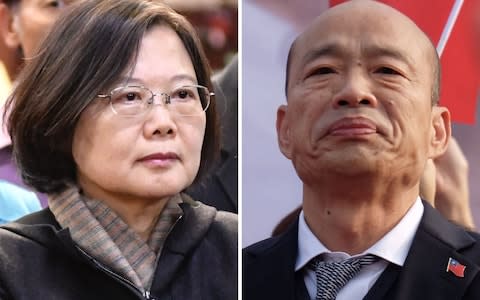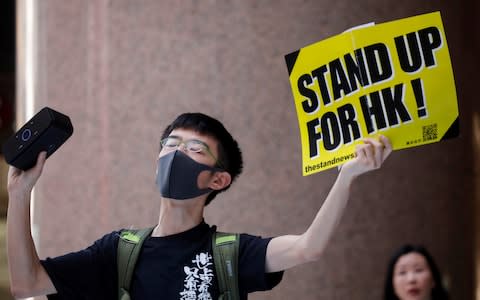Hong Kong tourists take four-day election tours to observe Taiwan's democratic polls

Joanna has often visited Taiwan, an easy one-hour flight from her home in Hong Kong. She is a fan of the island’s dramatic landscapes and the friendly demeanor of the Taiwanese. But this week, she is visiting for a different reason - to witness democracy at work.
She is on a four-day tour to immerse herself in Taiwan’s election culture ahead of presidential and legislative polls on Saturday.

Unusually for a tourist itinerary, the election-themed tour organised by Hong Kong travel agency GLO Travel is taking a group of 30 people to seminars with government officials and academics. In the evenings, they are joining fervent Taiwanese crowds at the final campaign rallies.
To vote directly for leader is a luxury that Joanna and other Hong Kong people long for as protests demanding democratic elections in their city head towards an eighth month with little sign of dying down.
“In Hong Kong, we can’t vote for our chief executive, but here in Taiwan, you can cast your vote for president, so of course we are quite envious,” Joanna, who declined to give her last name, said outside a cafe in downtown Taipei.
She hopes Tsai Ing-wen, the incumbent president, wins over Han Kuo-yu, her main opponent, because of Ms Tsai’s refusal to cave to pressure from Beijing, which seeks to annex Taiwan and threatens it with force. Han and his party, the Kuomintang (KMT), advocate closer trade ties with China.
“I can understand why economic issues matter more to some people, but if you lose your freedom, it’s gone,” she said.
Joanna’s tour first stopped to hear a data analytical firm explain how social media and disinformation campaigns are affecting the elections. That was followed by a visit to the Mainland Affairs Council, the official body in Taiwan handling interactions with China.
The protests in Hong Kong started last June against a now-withdrawn extradition bill. They have since evolved into a broad movement calling for more democratic rights and protection of Hong Kong’s autonomy.

Police officers’ excessive use of force and teargas have also angered and mobilised protesters, who are also using increasingly violent tactics.
Ms Tsai’s early vocal support for Hong Kong’s movement have helped boost her numbers especially among younger voters. By contrast, Mr Han was slower to voice his support although he later called on Beijing to give Hong Kong free elections.
“Hong Kong people have always cared about Taiwanese elections, but the interest is even more enthusiastic this time,” said Rubio Chan, a co-founder of GLO, the travel agency which also offers trips to less popular destinations including North Korea, Iran, and Palestine.
Spots on the Taiwan election tour were snapped up within two weeks of advertising online.
Mr Chan said that Taiwan is a popular travel destination for Hong Kong people as an escape from a stressful city where work hours are long and housing prices are the most unaffordable in the world.
He added: “Taiwan is the only Chinese democratic society, so they also want to experience that, and envision that one day [Hong Kong] might also have real elections.”

